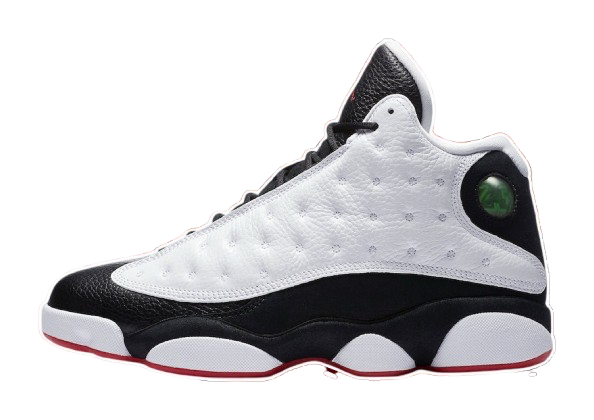Sole Scholars Foundation started from a simple yet powerful idea: giving back to the community that shaped its founder’s early life. Born and raised in Pleasantville, a city often overlooked and underserved, Darryl Glover transformed his passion for sneakers into a platform for hope, education, and empowerment. What began as visiting schools with a bag of sneakers to connect with kids has blossomed into a rapidly growing nonprofit that donates thousands of shoes, backpacks, and vital resources, while inspiring young people to find their own passions and pursue brighter futures. This is the story of resilience, faith, and the drive to lift up a community through culture and care.
What inspired you to start Sole Scholars Foundation, and how did journey inspire the mission?
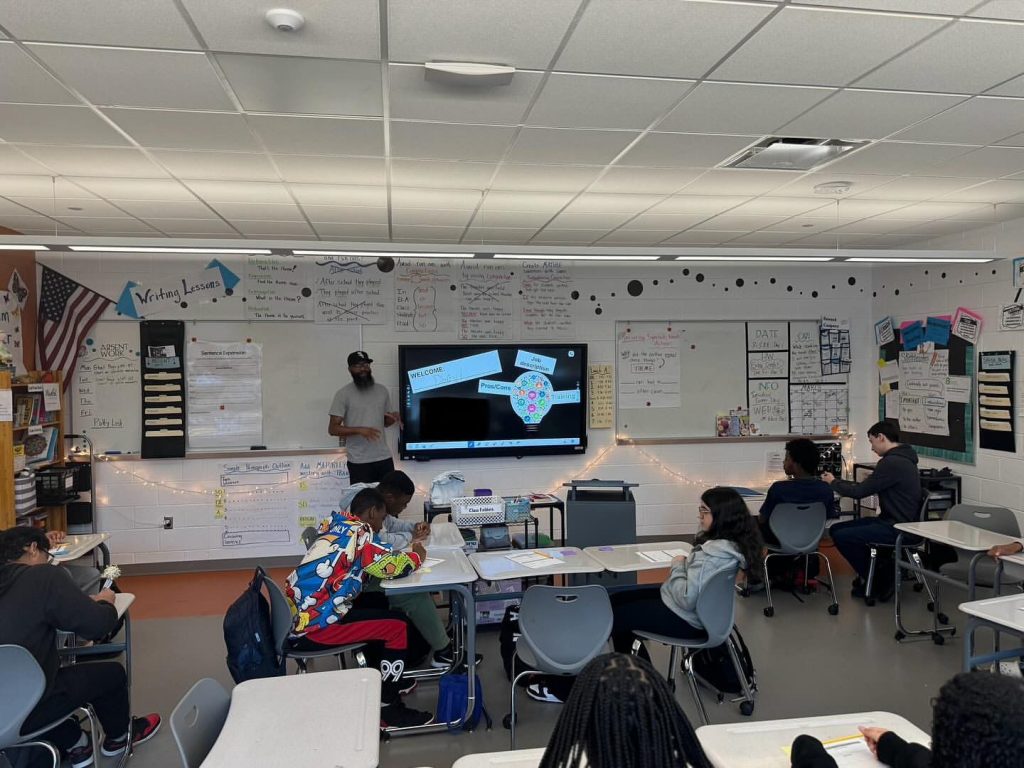
What inspired me most was the city I’m from, a place called Pleasantville. It’s a very underprivileged and underserved community. When I was growing up, we didn’t have a lot of resources. It was a very impoverished area. As I started to grow and build up in the sneaker industry, in terms of my career and the opportunities I got working with different brands, I always wanted to give back. I began by speaking at different schools during career day or reaching out to teachers I knew. I was sure sneakers are popular, and it would be a great way to engage and connect with the students.
So I started visiting schools. I’d bring a bag of sneakers and talk about them, like my favourite sneakers, something older than the kids, something new that had just come out, or a hype release like Travis Scott or Off-White, things they were wearing. It started off organically like that, then more schools began reaching out to me, asking me to come speak to their students. One day, I was driving to a school, and it hit me. II’m a really religious person, and while I was driving on the parkway, I felt like God was telling me to go back to my hometown and give back there too. Right then, in the middle of driving, I called my mentor and said, “God said he wants me to come back. Can I use the church, to give back?” He agreed.
I hit the ground running. I started an LLC, came up with a name, designed a logo. My first event was last year. This vision came to me in May, and by August, just three months later, I had my first event. We gave away 50 pairs of sneakers, 500 backpacks, and a bunch of other resources. Later this month, I’ll be hosting my second event, where we’re expecting nearly a thousand pairs of sneakers, a hundreds backpacks, and school supplies. The kids will also be able to make their own trading cards.
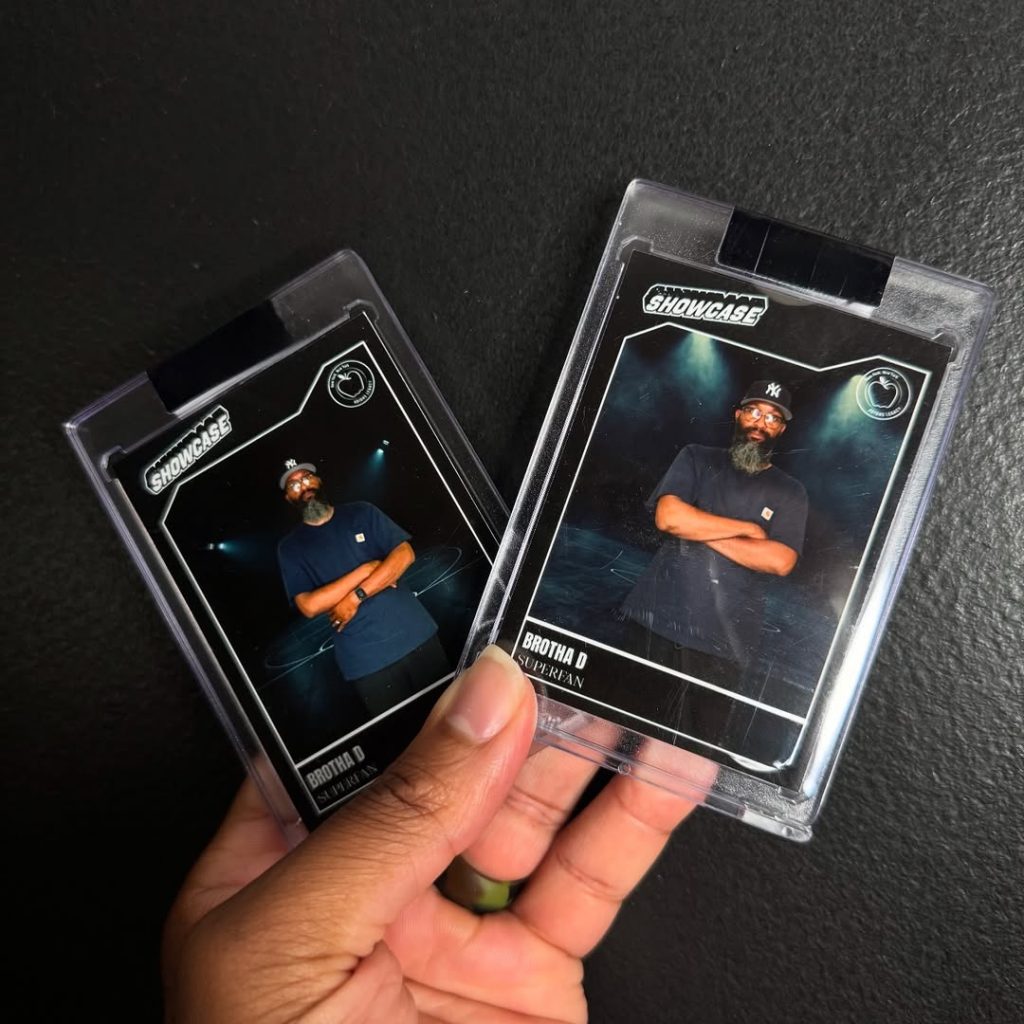
I have two different healthcare providers, hospitals that will be there doing onsite screenings, along with voter registration and a job fair. We’ve partnered with StockX, Footlocker, The Whitaker Group, Reshoevenator, Snipes and L’Oréal getting involved, too. So in just a year and a couple months, it’s grown so much already.
This is my passion project, I don’t want to be the person who made it out of their city, and just ran away without looking back. I want to turn around, put my hand down, and help lift people up. Inspire people to do great things, to make the world a better place. So being able to put myself in their shoes and think, “This is what I would have needed when I was younger”, that was the real motivation for me. When I was growing up, I saw people like Allen Iverson doing bookbag drives in Philly, or Donovan McNabb speaking at schools in Philly or Cherry Hill, and celebrities like 50 Cent in New York. All these rappers and celebrities were in their major cities, giving back.
And I thought, “What about us? We don’t have anybody coming to help us.” I wanted to experience that, for my favourite basketball player or movie star to come to my school, give out bookbags or supplies, speak to us, or sign autographs. Even today, when I’m on these calls leveraging my network and partnerships, I still get “no’s.” They say things like, “We need to be closer to a bigger market area.” If I were in Philly or New York, maybe it would work better. I’m still hearing that now, even as a grown man trying to make this happen for my city. Some brands say, “If you were in Atlanta, we could have given gift cards, bookbags, or set up a booth.” But I’m still doing the work, and I’m not letting it stop me. There are brands who have stepped up and are willing to help, and I’m very grateful for them.
You said “sneakers saved my life.” What did you mean by that? Is there a story behind it, or is it more of a figure of speech?
I mean it seriously. When I was younger, I was surrounded by negativity, violence, and crime, those things really consumed my area. I’d be lying if I said I wasn’t ever involved or dabbled in things that weren’t good. So having sneakers, having that outlet, helped me turn the negative things in my life, the bad situations I was in or bad choices I made, into something positive. Sneakers became a way to change the course of my life, to go down a different path, and eventually, to build a career.
I had plenty of teachers, friends, and family who told me that the outcome of my life “might not be much.” They said things like, “You might graduate high school” The life expectancy in my city is very short. Many people in my graduating class have died, gotten hooked on drugs, or ended up incarcerated. I even had teachers tell me I’d never be anything. But one of my favourite stories is when I started collecting shoes, this is a very “Airworks” kind of story. For kids like me, you only got sneakers maybe once or twice a year: for back-to-school, your birthday, or Christmas, if you were lucky.
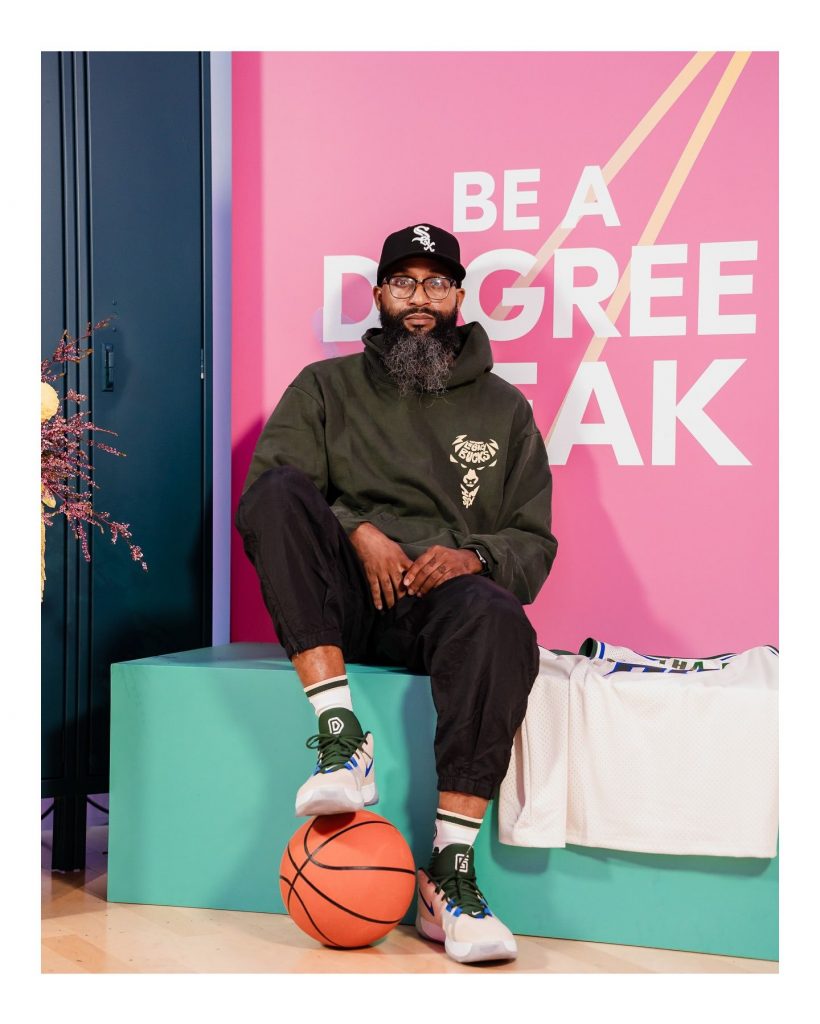
But once I started working, even under the table, when I was 12, at a bakery, I began buying shoes on my own. Eventually, my dad started asking, “Where are all these sneakers coming from?” At one point, he told me not to bring any more shoes home because it wasn’t going to amount to anything. So, when I would camp out at Foot Locker or Foot Action for shoes, on my way back, I’d stop at McDonald’s. I’d buy breakfast, hotcakes, sausage, and coffee, and take it inside to my parents. While they were eating, I’d climb up to the roof, grab the sneakers I’d tied up there, and stash them back in my room. Nobody knew.
That was my mindset: nobody was going to stop me, nobody was going to stop this dream, this passion. There weren’t many sneaker jobs back then. Nobody knew how to make sneakers professionally; you just loved and collected them. But that was my way of saying, “I’m going to chase this dream,” even when people told me no.
Because of sneakers, I’ve traveled the world, appeared in major publications like Sneaker Freaker multiple times, been on Complex podcast, and I’m not a celebrity. I’ve been featured in tons of media outlets, worked with some of the biggest companies, and built a career doing what I love. I’ve surpassed everything I was told. I’m still growing and evolving because of this passion. Sneakers really are my life, I eat, breathe, and sleep them. It’s what I do every day. I think sneakers are incredibly important because they’re so symbolic. They mean different things to different people. For some, it’s family tradition, their dads collected sneakers and passed that on. For others, it’s about culture, style, or even sports.
Why is it important to integrate sneakers and sports culture into your empowerment programs?
It starts with the idea, kind of like Deion Sanders tagline that “if you look good, you feel good, and if you feel good, you perform well” great opportunities come your way. It’s also about showing the kids that this is my thing, sneakers are my thing. I took this passion and made it work for me. I want to help them find their own thing, their own passion. For me, that thing was sneakers. It’s about finding that thing you love, mastering it, learning everything you can, becoming extremely knowledgeable, and turning that passion into a career.
That’s what I try to teach when I go to schools. If I’m bringing sneakers to the table, that’s my passion, something I love. I share resources and my roadmap, but I want to inspire the kids to go home and write down what they love. Whether it’s music, movies, filmmaking, rapping, singing, producing, or making beats, everyone has their own thing.
At the same time, I want to equip the schools and the city, which is heavily impoverished. We’ve done research showing that, on average, it costs about $900 a year to send a kid to school, that includes a basic backpack, school supplies, a pair of shoes, uniforms or clothes, transportation, yearly physicals, and all those things. If I can supply those things for kids in a city that’s below the poverty line, to help them be prepared or to lighten the load for their parents, that’s something I take great pride in. It’s incredibly powerful.
When you approach a sponsor, what are you looking for? Are you asking for donations, financial support, or people who want to help raise awareness? What would you say to someone interested in sponsoring you?
Typically, I lay out all the options. For sneaker brands, I say, “If you can give product to help outfit these kids for school, that’s amazing.” If they can’t give product, a financial donation to help buy sneakers works, too. I want to shout out Footlocker, back-to-back years they’ve contributed. The first year, they gave money; this year, they gave both sneakers and money. Huge shoutout to StockX, too. I know they get a lot of online flack and drama, but they’ve been boots on the ground both years in a major way. Last year, they gave 500 backpacks and sent 14 volunteers, including corporate staff who came to help. This year, they’re donating $5,000 and sending over 14 volunteers, with many top corporate folks coming out to help here in New Jersey.
The Whitaker Group has also been instrumental with donations. When I approach these groups, I say, “Can you give sneakers, financial help, or come see the impact we’re making? Don’t just give product and wash your hands of it. Come watch me give it out so you know it’s real, see that my intentions are pure, and see your donations at work.” II’ve been collecting sneakers since I was 12, and I just turned 37. I’ve been collecting for over 20 years. I have a decent following on Instagram, over 12,000, and on Twitter. I could easily leverage those to get brands to send me sneakers for myself but that wont help anyone.
Let’s go back to 2024. What did the Sole Scholars event look like?
The vision came to me from God in May. I’m a huge Kobe Bryant fan, so I decided to hold the event on 8/24, a perfect way to honour Kobe. I rolled that out to the brands and talked about Kobe, using his inspiration. I had three months to promote, but during those three months, I had to gather goods, financial donations, and sponsors, and also work on getting my 501(c)(3) nonprofit status approved. People wanted that documentation, but it was still pending, so that slowed things down.
There was a lot to do: collecting inventory, finding volunteers, and with such a short window for advertising and marketing, I had to hustle on Facebook groups and around the city, passing out flyers and spreading the word. The turnout was never going to be as big as I hoped, but I gave myself grace. The community that came out was still amazing, we served over 200 families . It was a trickle, not all at once. We also had a basketball element, my local high school, my alma mater, hosted a basketball clinic with the girls’ team doing three-on-three, a three-point shootout, and a skills clinic inside the gym.
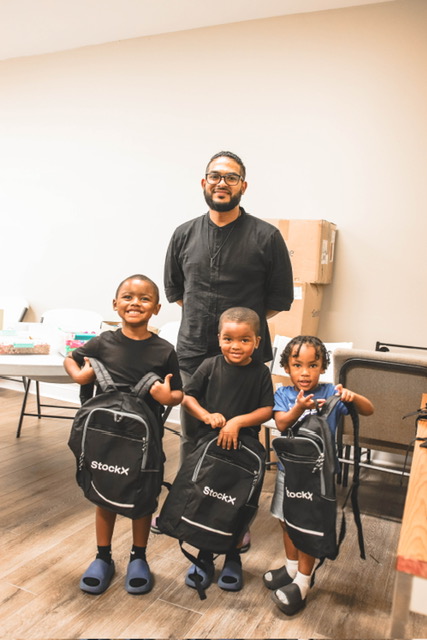
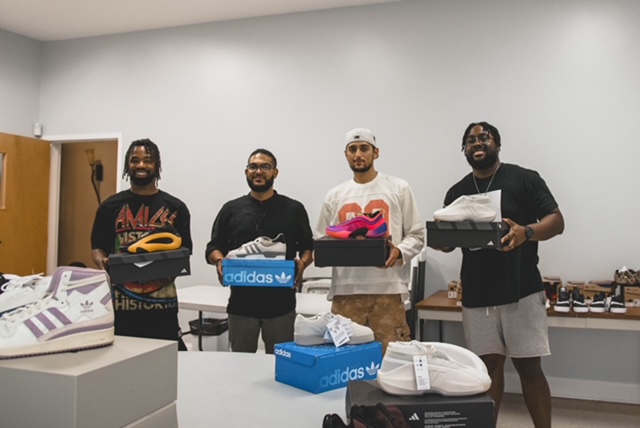
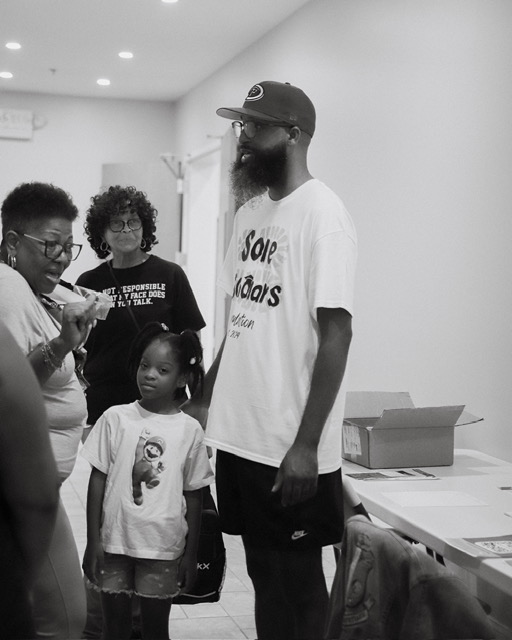
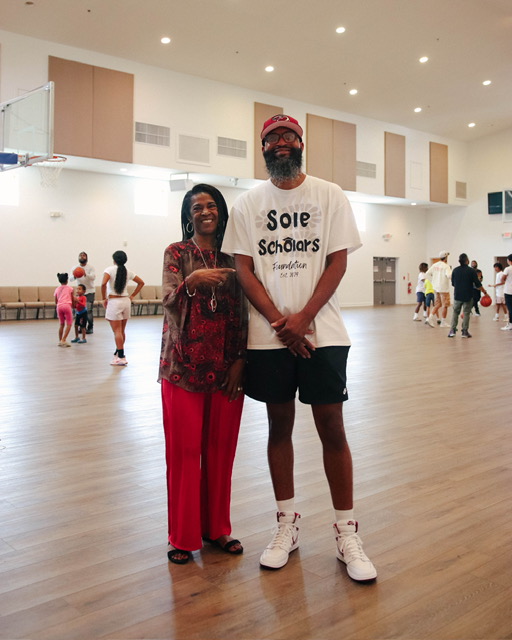
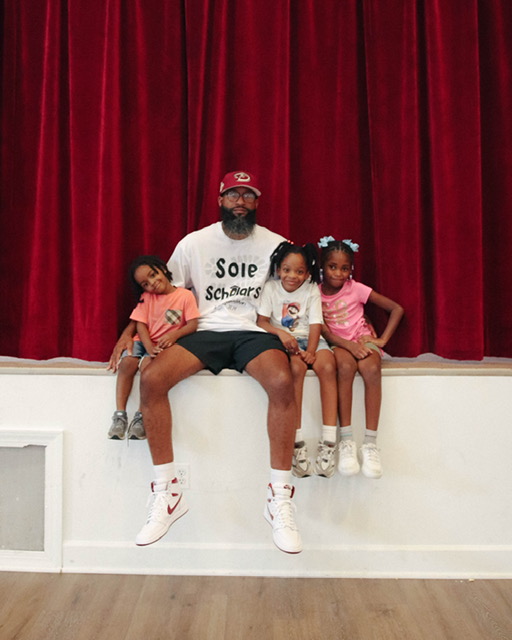
So it was a nice turnout, around 300 people served, and it was a good foundation for us to prove the concept works and to build it out. Now I’ve had the whole year to build relationships and gather inventory, so I’m moving more like a veteran. I was strategic about the 2025 event announcement. I set the event date for August 23rd and announced it July 23rd, just a month ahead. That way, people don’t forget, and I can drip information weekly, repost it, and then go hard the last week with daily posts from August 18th through the event day to really embed it in people’s minds.
Especially for a first event, it’s so hard to get traction. People need to feel that FOMO, once those 200 people share their experience, the next 200 will come through hearing about it. So, you’ve done the first event, right? What does 2025 look like? You’ve definitely stepped it up, the names you’re dropping are huge. I’m really excited; it sounds like night and day compared to last year. Even the impact on social media has been massive. The Soul Scholars Instagram is booming, Facebook engagement has skyrocketed, and Twitter’s gotten a huge boost too. People keep reaching out, saying they’ve told their friends about the event.
Whats planned for Sole Scholars 2025?
The 2025 event will be held at the same place, the church I grew up in, got married in, and where my daughters was blessed. They have an extracurricular building attached that we’ll use for the event, so it’s like a community center. All the brands have come on board. We have the NAACP doing voter registration, a healthcare clinic doing screenings, and we’re bringing back the sneaker design table from last year. Kids will get to colour and design their own versions of popular silhouettes like Air Force 1s and Jordan 1s. We’re also setting up a “write a letter to your hero” station, kids can write letters to whoever inspires them, whether it’s a parent, Serena Williams, SGA, Drake, or anyone else. We’ll collect those letters, put posters on them, and mail them out to those heroes.
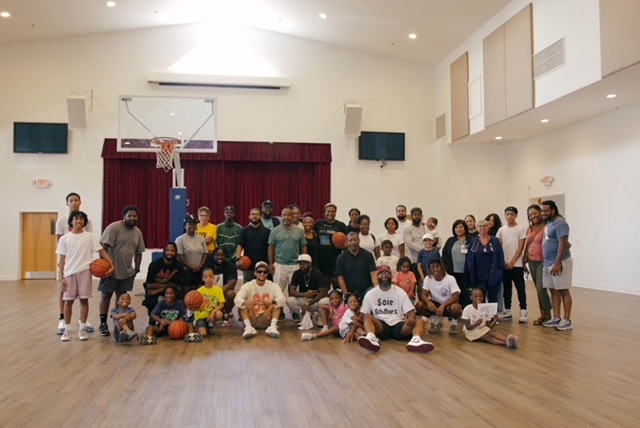
Reshoevn8r is on board again, providing a sneaker cleaning station. When kids come to pick up their free sneakers and book bags, they’ll get a cleaning kit and learn how to properly care for their shoes. If they want, we’ll even clean their sneakers on-site. We’re also working on bringing in an NBA player or two to run a basketball clinic, but that’s still in the works, a lot of moving pieces, but I’m trying my hardest.
Another sponsor that’s really close to me is a trading card company called iTouch. They work with the NFL, NBA, NHL, and Topps. Every kid who comes will be able to make their own trading card with their picture on it. The card will be sealed in hard plastic, like a professional graded card. That’s inspired by seeing celebrities visit other cities and thinking, “Why not Pleasantville?” These kids dream of playing basketball or making it to the NBA, and this card will remind them that they’re somebody, that they’re important. They can keep the card in their room or carry it with them as a symbol of pride.
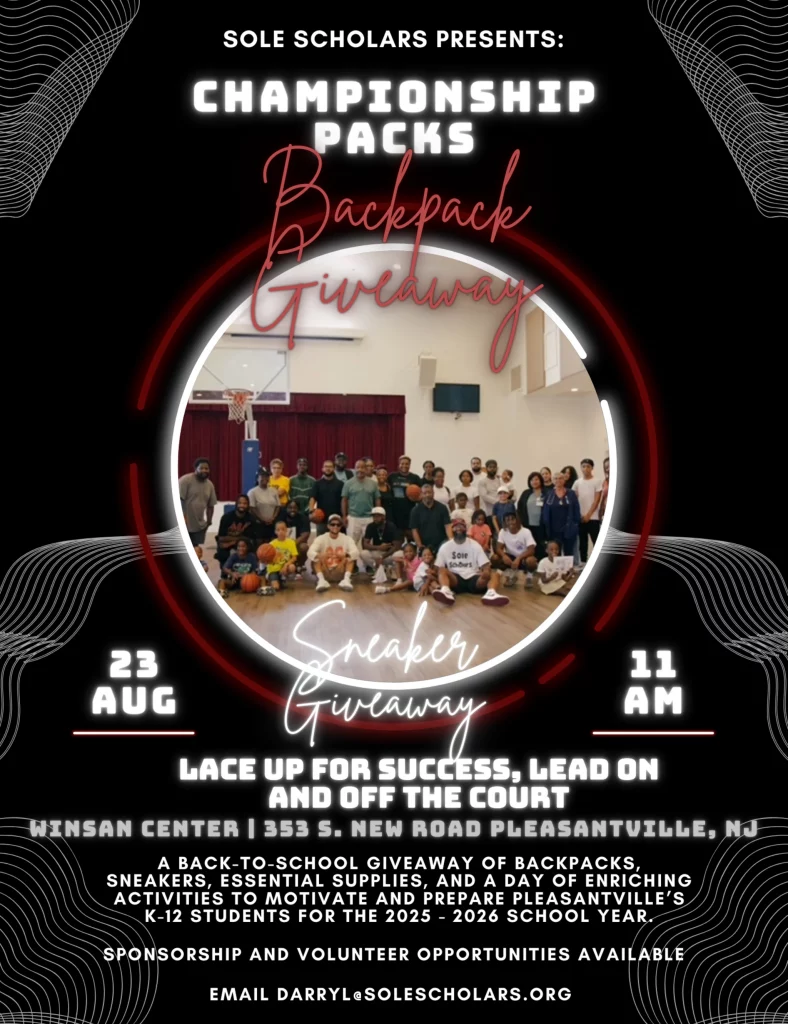
iTouch is based in California, and they’re flying in to help. They gave an 80% discount on their fees, and I’m covering the remaining 20%. So they’re flying all the way across the country to support us in New Jersey, which, yeah, feels like the middle of nowhere sometimes. It’s tough when you’re not in big cities like LA, New York, Miami, or Atlanta. Places like Pleasantville often get overlooked. So bringing in brands and giving these kids access to things like sneaker cleaning stations or trading cards is special. L’Oreal USA has also been a major sponsor two years in a row. Last year, they donated shampoo and conditioner, and this year they’re adding toner, face wash, deodorant, all the hygiene essentials kids might not have.
You asked about volunteers, what can people do to help?
Anyone from grade school kids to senior citizens can volunteer. You can pick your hours, whether it’s 11am to 2pm or the whole day. Volunteers can do whatever they want: read to kids, direct people, pass out book bags or sneakers, run the basketball clinic, clean sneakers — whatever fits their interests. Everyone who volunteers will get signed documentation confirming their hours. That’s great for high schoolers building resumes, people on probation needing volunteer hours, or college students needing credit. I’ll provide signed letters verifying their time. So, if you want to give a couple hours or a full day, you can choose what works for you.
And I’m letting you pick what you want to do. If you want to pass out hygiene products, unload or load the truck, or come cook food, we’re working right now with food vendors and ice cream vendors to try to get ice cream and food. It’s going to be a big thing. So, if someone says, “Hey, I don’t know what I want to do. Can you help tell me what I should do?” I’ll do that. But literally, on my website, you can pick what you want to do. We cover all of that.
So the next event is around the corner. What are your plans going forward? You’re based in Pleasantville now, are there plans to expand further?
I think, at minimum, it’ll always be a back-to-school event in my city. I’ll continue doing that and visiting schools in New Jersey. The next level is giving out scholarships, I want to give $1,000 to $2,000 scholarships. The ultimate goal is to branch out, like you said, not to bigger markets but outside of New Jersey, those smaller cities. I want to start with the people who are ignored, those who don’t have resources because they don’t live near a major city. I want to start serving them and continue leveraging my network, partnerships, and relationships to help them. Not just help myself, but when someone says, “Hey, you’re doing a campaign in New York City and need a face or someone to talk to kids,” I’ll be that person.
I don’t want to be a crutch, like the guy who shows up every August with sneakers and people depend on me. The goal is to inspire them, give them resources to grow, and one day not need the help anymore. It’s like the saying: give a person a fish and you feed them for a day; teach them to fish and you feed them for a lifetime. I want to grow them to where I can say, “Alright, you’re good, job well done,” and then move on to other cities and grow this out in other ways.
Related posts
Never Miss A Drop
Sign up to our free newsletter to keep your finger on the pulse with exclusive content, raffles, releases and so much more!
Upcoming Releases
